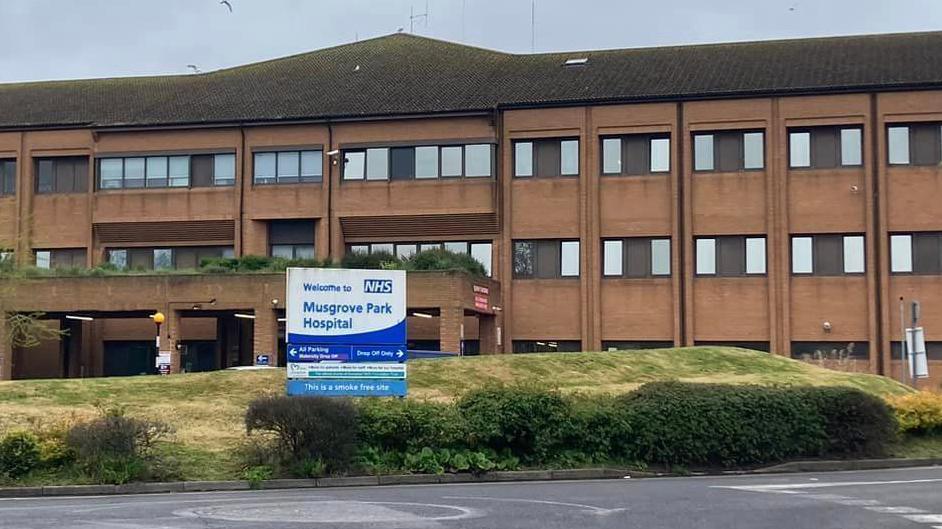Liver patients with no symptoms diagnosed in NHS first
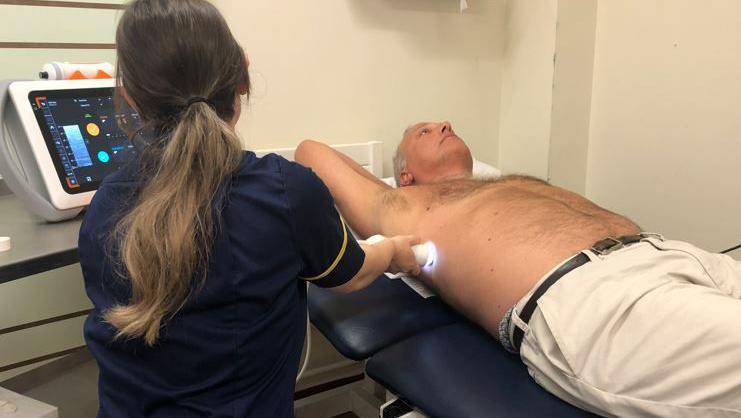
Health Correspondent Matthew Hill underwent a scan
- Published
Hundreds of patients have been diagnosed with liver diseases in what is believed to be a world first NHS mass screening pilot.
The £1.4m Somerset project analysed the blood of 700,000 people over the age of 18 for markers of liver disease, and identified about 700 patients with problems.
The new tool scans historical medical data to identify those at risk of developing problems, and they are then called in for a scan before symptoms begin.
Brian McHugh, 70, from Taunton, was one of those patients identified and said it was "better to find out sooner rather than later".
'Treat them early'
Chronic liver diseases commonly progress without symptoms, meaning that often the first time people see a doctor for it is in an emergency situation when treatment options are limited.
The late detection of chronic liver disease increases the chance of complications such as liver cancer, liver failure and the need for transplants.
Dr Tim Jobson, who helped to develop the new screening tool, said: "The pattern that suggests in five or ten years time they are going to have a problem - we can see them now.
"We can see them early, we can treat them or they can change their lifestyle, whatever they need to do in order to not end up having advanced liver disease.
"That includes liver disease from viral disease, inherited problems, immune disease as well as the more common ones such as fatty liver disease and alcohol."
Rapid diagnosis
The new tool was developed after Dr Jobson, a liver consultant in Taunton, shared his concerns about undiagnosed liver disease with an expert in healthcare IT in 2019.
They teamed up with Somerset NHS Foundation Trust and secured funding from the National Institute for Health Research to create a solution, which resulted in the launch of Predictive Health Intelligence (PHI), a part-NHS-owned enterprise.
PHI then developed hepatoSIGHT, a case-finding tool designed to harness the vast amounts of historical medical data that has been built up over decades.
The tool is used by clinicians at the Somerset trust to find people who might be at risk of liver disease, based on their historic test results.
Once a cohort of patients is identified by the clinical team, the Trust write to them inviting them in for a review of their liver health meaning they can receive treatment sooner.
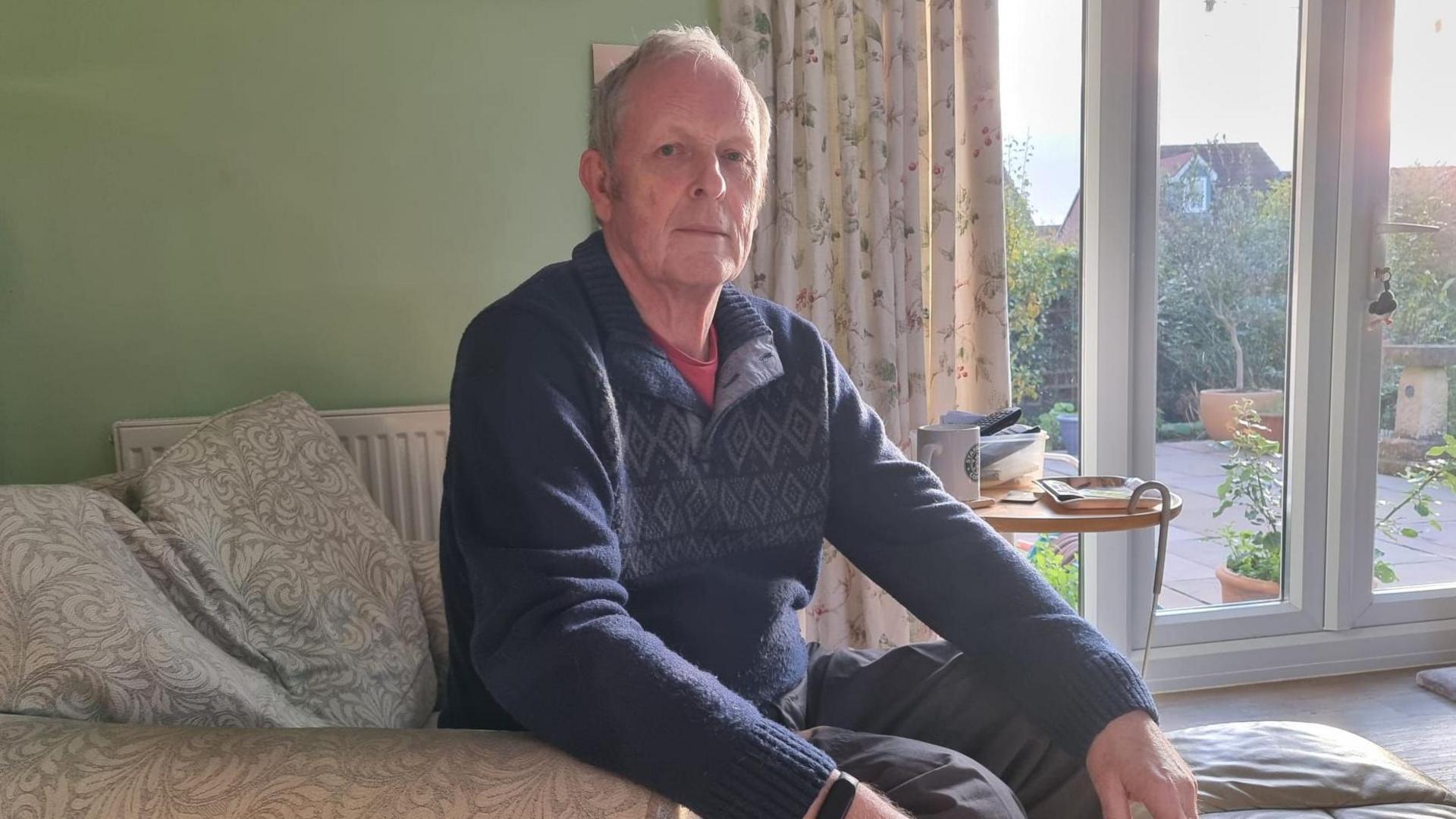
Brian McHugh was identified using the screening tool and found to have a liver problem
Mr McHugh said he was puzzled to receive a letter out of the blue as he had "no symptoms".
Two weeks later, Mr McHugh had an appointment for an ultrasound and was eventually diagnosed with primary biliary cholangitis, which is an autoimmune disease of the liver.
It can be treated with medication to avoid a transplant.
The 70-year old said: "Initially I was a bit concerned. It seemed there was something not quite right health wise, but I was keen to follow it up and find out what we are dealing with.
"I am sure this would be something that would have come to light with some rather more serious health implications later on.
"How long that might have taken I don't know.
"It was something better to find out sooner rather than later."
Dr Ahmed Elsharkawy from the British Liver Trust described the screening as "interesting".
He added: "The fact that it is automated is a big advantage.
"Obviously it’s still relying on people having had blood tests so it may miss those who have not had blood tests.
"But it is undeniable that because liver disease has no symptoms you need to rely on some form of screening. We will only see the benefit in the long term.
"This is the first iteration of hopefully more sophistic systems coming downstream."
PHI is in discussions about further deployments of hepatoSIGHT, with plans to extend its coverage to the whole population of the south west of England.
Dr Jobson added: "Adoption across the NHS of course would be what we are aiming for because it has the ability to impact many thousands of patients across the NHS .
"The data is already there, it is just finding those patients."
Follow BBC Somerset on Facebook, external and X, external. Send your story ideas to us on email or via WhatsApp on 0800 313 4630.
- Published21 April 2023
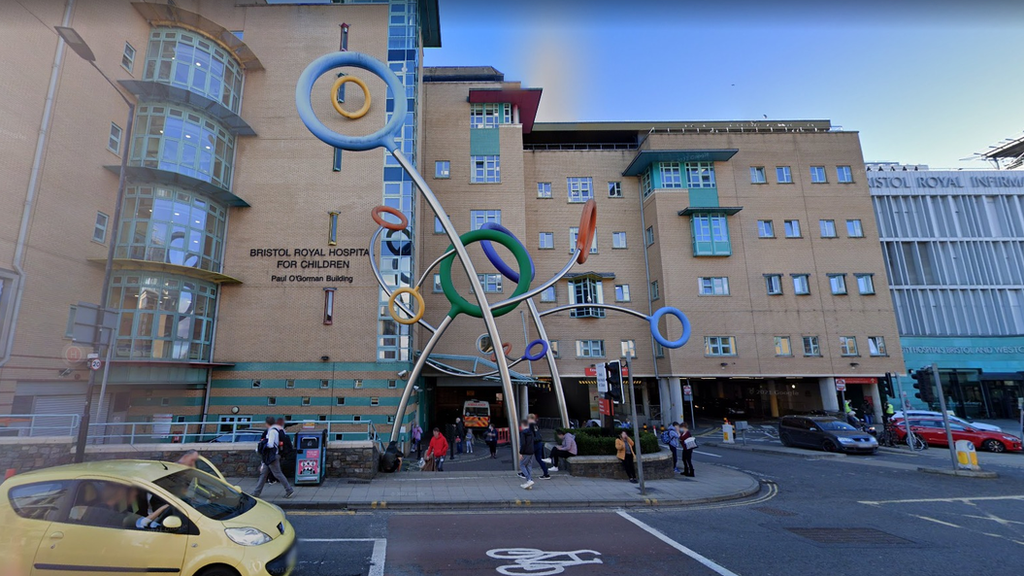
- Published10 October 2024
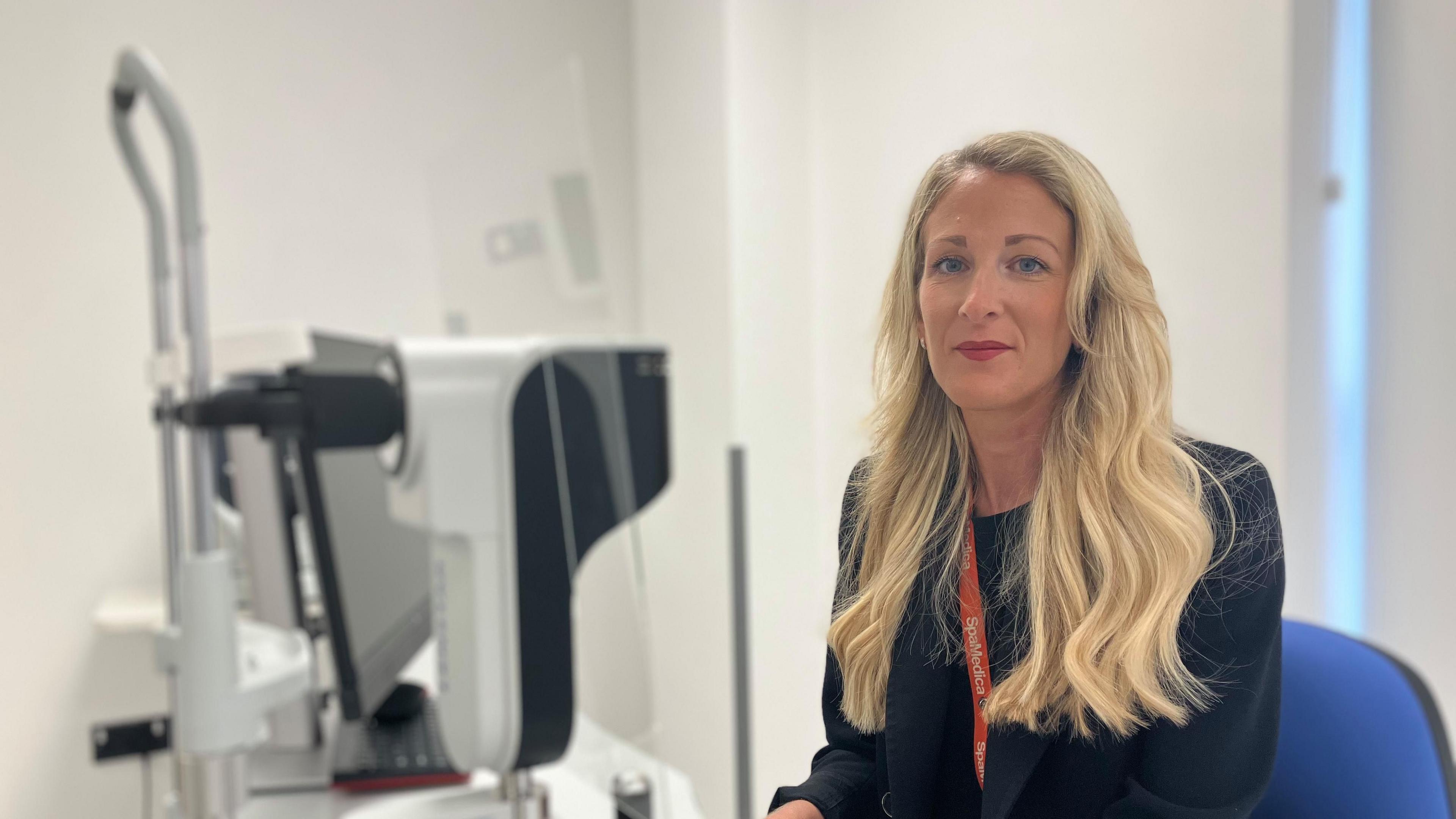
- Published17 October 2024
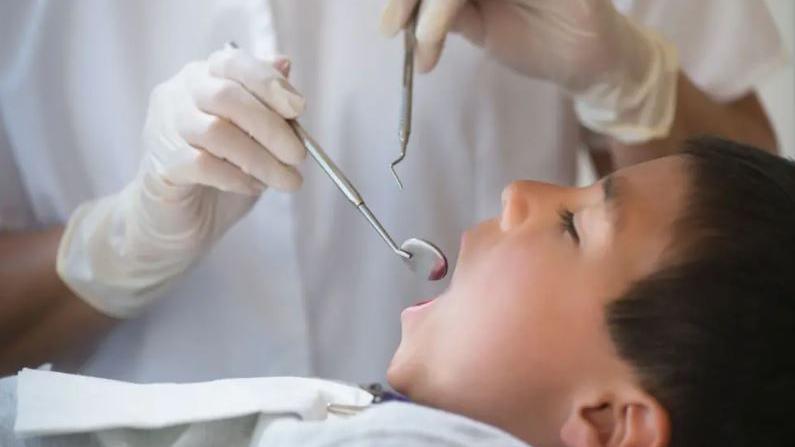
- Published14 October 2024
